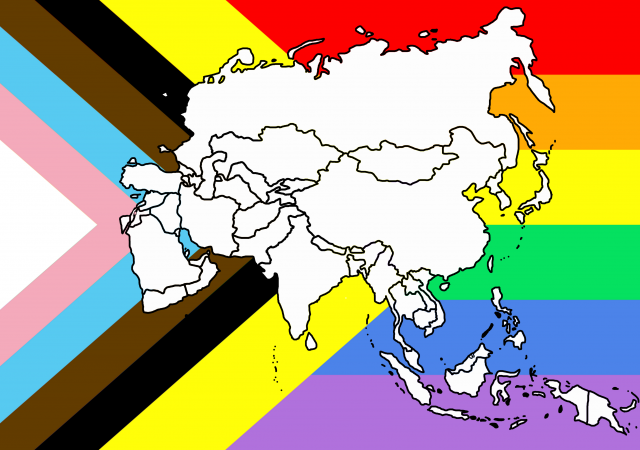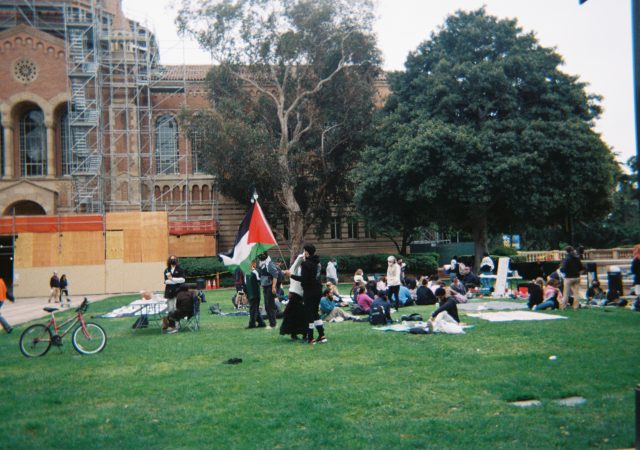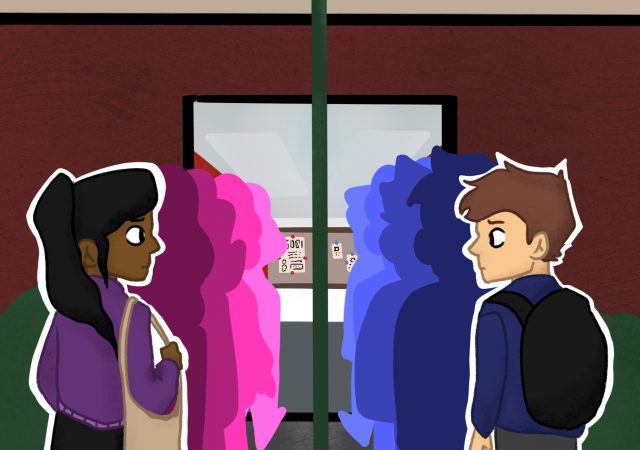Chino Hills, California is known for its outdoor shopping malls, its competitive secondary schools, and the fact that NBA basketball players the Ball brothers once lived on its green and always-clean streets. In more recent years, my hometown has also become known for the discriminatory legislation and public prejudice of its ultraconservative school board council.
“This Is a Space of Love”: UCLA’s Palestinian Solidarity Encampment
On Thursday, April 25, UCLA activists erected a pro-Palestinian solidarity encampment in Dickson Plaza. The organizers intend to remain in place until UCLA has fulfilled their primary demand for divestment from corporations and institutions complicit in the genocide of Palestinians. Over a hundred students congregated behind makeshift barricades, many with tents for overnight stays.
We Are Entering Our 2024 Election Voting Era: Why Voting Slays
At thirteen, I remember my parents frantically looking through a box in their closet containing important documents. They were searching for their citizenship papers, even though they had been United States citizens long before the election of a candidate whose campaign centered around deporting immigrants. My mother found the documents, held them closely, and sighed, relieved that everything was in order. Such was not the case for many other immigrants in the United States. Extended family and friends we knew were forced out of their homes, and their lives were forever changed. The fear that ensued from the results of the 2016 election was how I was first introduced to voting.
The Fight Over Flags
When I was in high school, my friend and I fundraised and worked with our district to paint progress pride flags at each campus in the school district. While some called our project indoctrination, others claimed it was unnecessary because they believed this was an empty display of virtue signaling. However, as our right to queer expression continues to suffer heavy restrictions around the country, it is crucially empowering to permanently show that we are not leaving. Students may not feel safe at home, and affirming their identities decreases depression, anxiety, and suicide rates by allowing them to be themselves in school. The symbols used to identify people’s orientations and politics inform others of whom to trust.
Asia’s Steps Toward Queerness in 2023
Towards the end of October 2023, Japan’s Supreme Court ruled that their long-held legislation requiring transgender citizens to undergo medical sterilization and have “no functional reproductive glands” to legally change their gender is in fact unconstitutional. Even with this change, they must be unmarried and have genitals that present as the “gender” they are trying to identify as. Though there remain some obstacles, this court decision will allow for a life without legal violations of physical autonomy. In the spirit of this queer legislative win for Japanese people, we’d like to highlight how queer folks in other regions of Asia have also witnessed victories and an expansion of dedicated space within the past year.
The Loss of Jesús Ociel Baena, Mexico’s First Nonbinary Magistrate, and What it Means for the Community
On Monday, Nov. 13, reports of the death of nonbinary Mexican Magistrate Jesús Ociel Baena sent shock waves through the LGBTQ+ community.
The Supreme Court on Queer Rights: A Checkered Future
In June 2023, six out of nine Supreme Court justices ruled in 303 Creative LLC v. Elenis that a Colorado graphic designer could legally discriminate against same-sex couples by refusing to make websites for their weddings. The case expands the narrower precedent of Masterpiece Cakeshop v. Colorado Civil Rights Commission, a 2018 decision which ruled that the Colorado Civil Rights Commission could not compel a bakery to sell a wedding cake to a same-sex couple. Both rulings used the First Amendment’s provision for religious freedom as a bludgeon against the LGBTQ+ community’s right to access to public life.
Why Pride This Year?
Picture this: it’s June 28, 1970, nearly a year after the monumental Stonewall riots, and you’re attending the first Pride Parade in New York City. Except it’s not a parade, and it’s not entirely about Pride: it’s the Christopher Street Liberation Day March. Here, we recognize the familiar names of Marsha P. Johnson, Sylvia Rivera, Miss Major Griffin-Gracy, and the lesser known names of the march’s organizers Craig Rodwell, Fred Sargeant, Ellen Broidy, Linda Rhodes, Brenda Howard and many more. Unlike today’s Pride Parade, this march in New York was dedicated to Gay Liberation in the forms of political speeches, demonstrations, and gay visibility.
FDA Removes Ban on Queer Men Donating Blood
On May 11, 2023, the U.S. Food and Drug Administration (FDA) officially struck down its ban on blood donations from queer men. This news comes less than four months after the FDA initially proposed these changes in January for a 60-day public comment period.
Tennessee’s Anti-Drag Bill Sets a Dangerous Precedent
On March 3, 2023, Tennessee Governor Bill Lee signed Senate Bill 3, a bill that bans public drag shows under the rationale that they are “adult-oriented performances that are harmful to minors.” The first offense would be classified as a Class A misdemeanor, which can result in jail time of up to 11 months and 29 days and/or fines of up to $2500. The second or subsequent offenses would be classified as Class E felonies, which can lead to one to six years in prison and/or a fine of up to $3000.



























